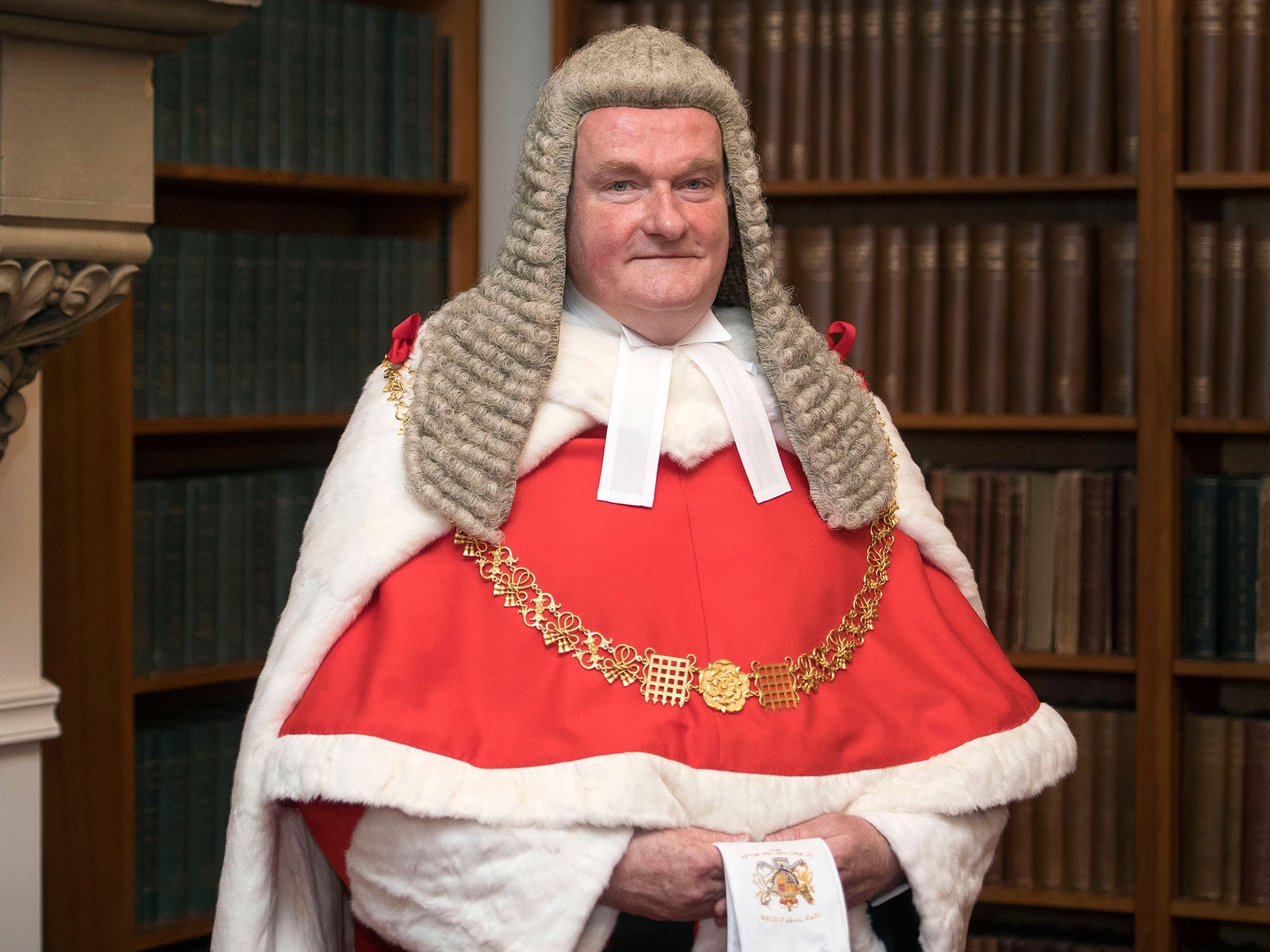Lord Chief Justice defends lawyers after Priti Patel attacks
Country’s most senior judge says ‘everyone is entitled’ to representation after home secretary’s comments on asylum appeals

The country’s most senior judge has defended lawyers and said “everyone is entitled” to representation after the home secretary renewed her attacks on the legal profession.
Responding to the Liverpool bombing last week, Priti Patel said a “professional legal services industry” was exploiting a “merry-go-round” of asylum appeals and “defending individuals that cause the most appalling crimes against British citizens”.
The home secretary has railed against what she calls “activist lawyers” since last year, including in a tweet posted days before a man allegedly attempted a far-right terror attack targeting a law firm involved in deportation cases.
At a press conference on Tuesday, the Lord Chief Justice was asked whether the government’s criticism of what it labels “leftie lawyers” was fair.
He replied: “Lawyers act on instructions from their clients. That is what I did, that is what every lawyer does, and everyone is entitled to have their case argued, their case presented.”
Lord Burnett of Maldon, who is the most senior judge in England and Wales, said all lawyers were subject to the law, professional obligations and codes of conduct, and must “faithfully argue the case they have been instructed to argue”.
Ms Patel was accused of stoking anger against lawyers with her comments over the Liverpool Women’s Hospital bombing last week, amid questions over why the Home Office had failed to deport the bomber, and how security services failed to spot at least seven months of planning.
The Law Society said half of asylum appeals were upheld and it was not lawyers, but “poor Home Office decision-making coupled with catastrophic delays that are crippling the asylum system”.
It comes amid tension between the government and legal bodies over the state of the justice system, including record crown court backlogs and a row over legal aid.
Lord Burnett said that reducing the number of cases waiting to be heard will need more judges, more court staff and sufficient capacity among lawyers, prosecutors and the police.
“This will need funding,” he added. “Without enough money there will be no reduction to the delays in any jurisdiction.
“There must also be sufficient investment in the court infrastructure, buildings and technology, to avoid disruption caused by IT failures or a lack of maintenance.”
The Lord Chief Justice said it was impossible to say when court backlogs would be reduced back to pre-pandemic levels, as the number of cases entering court could go up because of the recruitment of 20,000 extra police officers and a drive to increase prosecutions for violence against women.
He warned that although the government has lifted a previous cap on the number of days courts can sit, which drove backlogs before coronavirus, there are not enough judges to hear cases at the speed needed.
“We are finding that capacity is holding back the volume of work, but it is not money at the moment in the crown court or court space,” he added. “We have a shortage of judicial capacity.”
Lord Burnett said the number of crown court judges had fallen partly because of government cuts to sitting days before the pandemic, and that efforts to make up the shortfall - including by bringing back retired judges - were ongoing.
“The next issue is that in many parts of the country the legal profession, solicitors and barristers, are not able to keep up with the volume of work that we are trying to list in the crown court,” he added.
“Too many cases cannot be dealt with because there is simply not the legal professionals to cope with them in some parts of the country at the moment.”
The Lord Chief Justice said the situation left judges “juggling priorities for trials” waiting to be heard, with those where defendants are being held in custody generally put first.
He called delays “deeply undesirable in the context of criminal trials” and acknowledged that some victims, including of sex offences, may drop out of proceedings as a result.
The judge said courts must not return to the situation before coronavirus, when “we had courtrooms sitting empty with judges available to hear cases that were ready for trial”, but the government would not fund them to sit.
He said sufficient funding had been granted for the coming year but going forward, “the money has to be available to enable the system to deal with as big a volume of cases as it is capable of doing”.
A Ministry of Justice spokesperson said: “Last month we announced the largest funding increase in more than a decade including half a billion pounds to tackle the vast impact of the pandemic, reduce backlogs and deliver the swift access to justice that victims deserve.”
Join our commenting forum
Join thought-provoking conversations, follow other Independent readers and see their replies
Comments


Bookmark popover
Removed from bookmarks